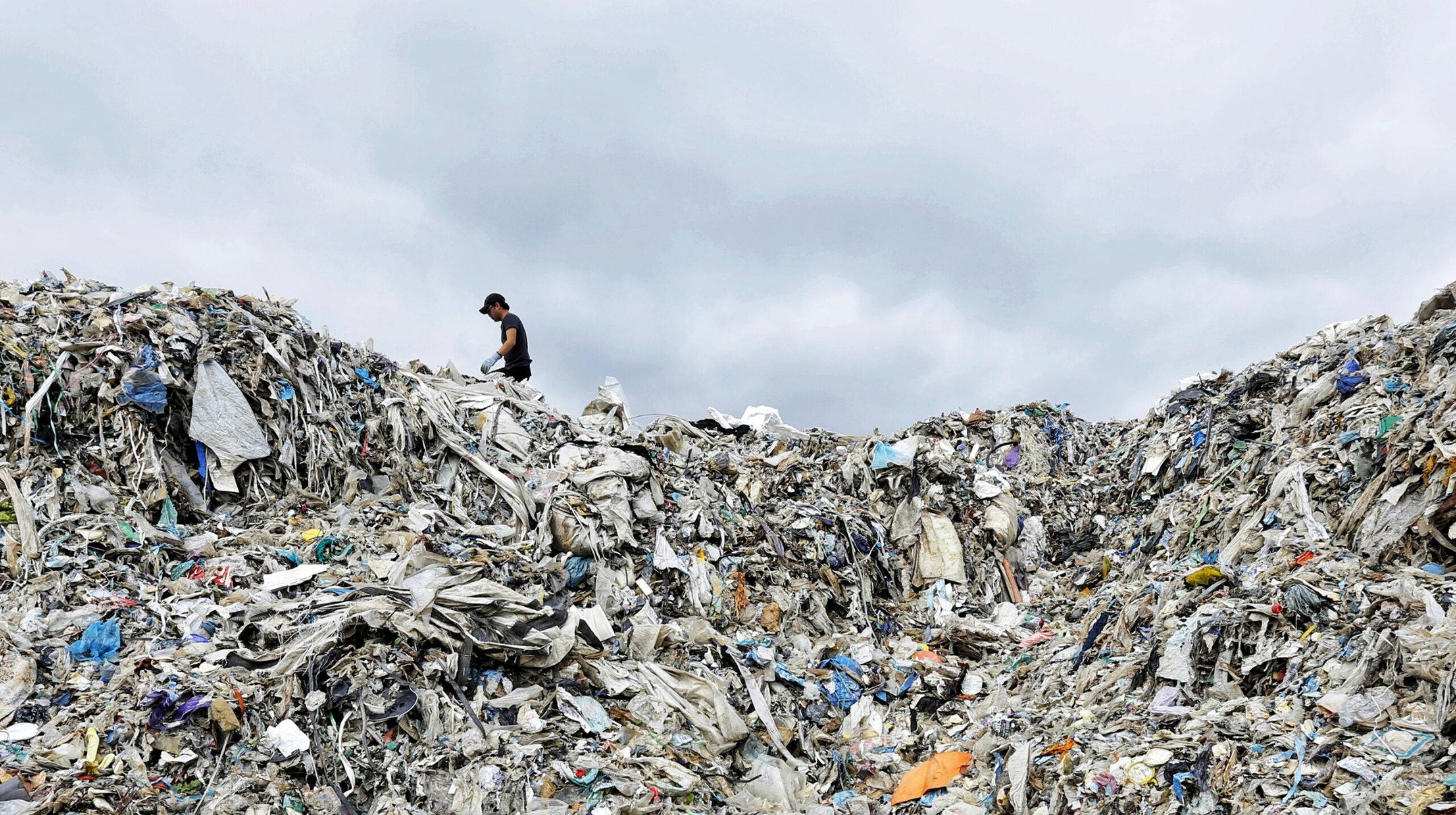
The final round of negotiations at the Global Plastics Treaty (INC5) will take place from 25th November – 1st December 2024 in Busan, Korea. The last round of negotiations ended with a ballooned and unworkable treaty text, and no agreement to cut plastic production – the single most important part of the treaty.
There is an urgent need and a strong public mandate for the new government to significantly raise the UK’s leadership and ambition. This is an essential step towards achieving a zero waste economy, which is one of the Environment secretary’s top five priorities.
At present, UK households are using almost 1.7 billion pieces of plastic a week – only 17% of which is recycled and a shocking 58% is incinerated.
What is the Global Plastics Treaty?
The plastics crisis is now widely recognised as a major threat to human health, biodiversity, and the climate crisis. As a result, in 2022, 175 countries voted to adopt an international legally binding instrument to address the full life cycle of plastic, including its production, design and disposal. The UN Environment Programme has described the Global Plastics Treaty as the most important multilateral treaty since the Paris Agreement in 2015. Four out of five rounds of negotiations have already taken place and discussions have covered a range of issues including: plastic production, regulation of chemicals found in plastics, product design, reuse and recycling, a just transition for workers in the plastics and waste industries, and a financial mechanism to support implementation of the treaty.
The most crucial part of the treaty concerns plastic production, which is currently set to nearly triple by 2050 and consume at least 21-31% of the remaining carbon budget to limit global warming to 1.5°C. To avoid busting critical climate limits and to send necessary global signals to unlock investment in a circular economy, it’s critical that countries agree to reduce the amount of plastic produced in the first place. It has been estimated that a 75% cut in plastic production is needed by 2040 to keep global warming to 1.5 degrees.
The most effective way to deliver the radical cut in plastic production needed is through agreeing a legally binding global target through the treaty negotiations, including obligations on each country to help deliver it, without loopholes. Any treaty that does not tackle plastic production would be a failure and this should be a red line for all progressive governments committed to solving the plastic pollution crisis, including the UK.
What are the opportunities for the Labour government ahead of INC5?
Momentum is building behind the call for a global agreement to reduce plastic production and, due to the previous Government’s weak approach, the UK is now lagging behind key allies including the EU and the USA. With negotiations fast approaching, the new Government has an opportunity to raise the UK’s ambition and ensure it uses its voice on the world stage to help secure a historic deal to end plastic pollution:
- The EU reaffirmed its commitment to ensuring production reduction is in the treaty by signing the Bridge to Busan declaration that calls for production limits to be included in the treaty text. 36 other countries have also signed the declaration.
- In addition, the USA recently decided to back a global reduction in plastic production.
- The most recent G7 declaration asserted the group’s commitment to ‘reduce and… restrain the global production and consumption of primary plastic polymers’.
- The business coalition for a global plastics treaty, including companies such as Unilever, Coca Cola and Ikea, has said, in its key messages for INC5, that “reduction is critical because recycling alone is not a viable solution to this crisis”.
Despite being a member of the ‘High Ambition Coalition’ under the previous government the UK didn’t support the proposal put forward by Rwanda and Peru to cut plastic production by 40% by 2040 and didn’t sign the ‘Bridge to Busan’ declaration. Given the strength of the petrochemical lobby at the UN negotiations, it is highly likely that this failure was the result of corporate capture (at the last round there were 196 fossil fuel lobbyists, outnumbering the smallest 87 country delegations combined).
Plastic pollution is hugely significant to the UK public. Over 220,000 people across the UK participated in The Big Plastic Count earlier this year, a citizen science project showing that we throw away 1.7 billion pieces of plastic per week, with 58% of it incinerated – and just 17% recycled. Several polls in recent years have shown that Britons overwhelmingly think cutting plastic production is a priority issue.
Priorities for the UK government:
- Support an ambitious, legally binding global target to cut plastic production. This target needs to be specific about the level of cuts to global production
- Use diplomatic channels to bolster support for this outcome
- Ministerial engagement in discussions leading up to INC5 and attendance at INC5
- Move towards a zero waste economy at home by committing to end permits for new incinerators; implementing an all-in Deposit Return Scheme (DRS) and Extended Producer Responsibility (EPR) requirements that promote reuse and packaging reduction; and committing to a complete ban on all plastic waste exports by 2027 or sooner.